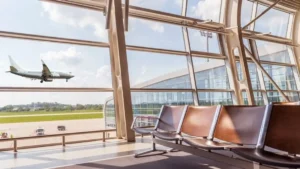Madhya Pradesh has taken a major step in India’s economic landscape by introducing the country’s first dedicated Global Capability Centers (GCC) Policy 2025. This initiative aims to attract multinational corporations by creating a strong ecosystem for global innovation and collaboration, particularly in Tier-2 cities like Indore, Bhopal, and Jabalpur. By providing a business-friendly environment, financial incentives, and infrastructure development, the state plans to position itself as a preferred destination for GCCs.
How Will Madhya Pradesh’s GCC Policy Benefit Tier-2 Cities?
The new GCC policy is designed to shift the focus from metro cities to emerging urban centers, helping Tier-2 cities evolve into global operational hubs. Indore, Bhopal, and Jabalpur are expected to be the main beneficiaries as they will receive Tier-1 level infrastructure to accommodate multinational corporations. Chief Minister Dr. Mohan Yadav has assured investors that the state will provide world-class facilities to make these cities attractive for business expansion.
This move aligns with the larger trend of decentralizing India’s economic growth, as seen in Karnataka’s plan to double its GCCs to 1,000 by 2029 by expanding beyond Bengaluru. Madhya Pradesh’s policy complements this by tapping into the potential of its own cities, contributing to balanced regional development across India.
What Incentives Does the Madhya Pradesh GCC Policy Offer?
To encourage investment, the policy provides multiple benefits, including:
- Financial Support: Companies setting up GCCs in Madhya Pradesh can avail up to 40% capital subsidy, with a maximum cap of ₹30 crore. Additional support includes rent assistance and payroll subsidies.
- Innovation and R&D Support: The state has allocated additional funding for upskilling, marketing, patent filing, and research and development activities, ensuring that businesses can innovate and compete globally.
- Ease of Doing Business: To simplify investments, the state has introduced a “No Query Portal”, a single-window clearance system that ensures a smooth and hassle-free process for businesses.
How Does This Policy Align with India’s Global Growth Strategy?
Madhya Pradesh’s move is part of India’s broader push to position itself as a global business hub. With rising GCC investments in India, states are now competing to offer better policies and infrastructure to attract multinational companies. The growth of GCCs in Tier-2 cities is expected to generate employment opportunities, boost local economies, and drive technological advancements.
By implementing this first-of-its-kind GCC policy, Madhya Pradesh is setting a benchmark for other states to follow, ensuring that India’s global business footprint extends beyond metro cities. This initiative is a clear signal that India’s economic growth strategy is evolving, with newer cities emerging as key players in global investments.
Summary of the news
| Why in News | Key Points |
|---|---|
| Madhya Pradesh introduces GCC Policy | Madhya Pradesh launches India’s first Global Capability Centers (GCC) Policy 2025. |
| Focus on Tier-2 Cities | Cities like Indore, Bhopal, and Jabalpur to be developed as global business hubs. |
| Incentives | 40% capital subsidy (max ₹30 crore), rent assistance, payroll subsidies. |
| Ease of Doing Business | Single-window clearance via the “No Query Portal”. |
| Support for Innovation | Funding for R&D, upskilling, marketing, patent filing. |
| Chief Minister | Dr. Mohan Yadav – CM of Madhya Pradesh. |
| State Capital | Bhopal is the capital of Madhya Pradesh. |
| Objective | Attract multinational corporations and promote regional development. |



 L&T Vyoma to Study 250 MW Green AI D...
L&T Vyoma to Study 250 MW Green AI D...
 Historic Approval: State Cabinet Clears ...
Historic Approval: State Cabinet Clears ...
 Andhra Pradesh Bags India’s Largest ₹8,1...
Andhra Pradesh Bags India’s Largest ₹8,1...








